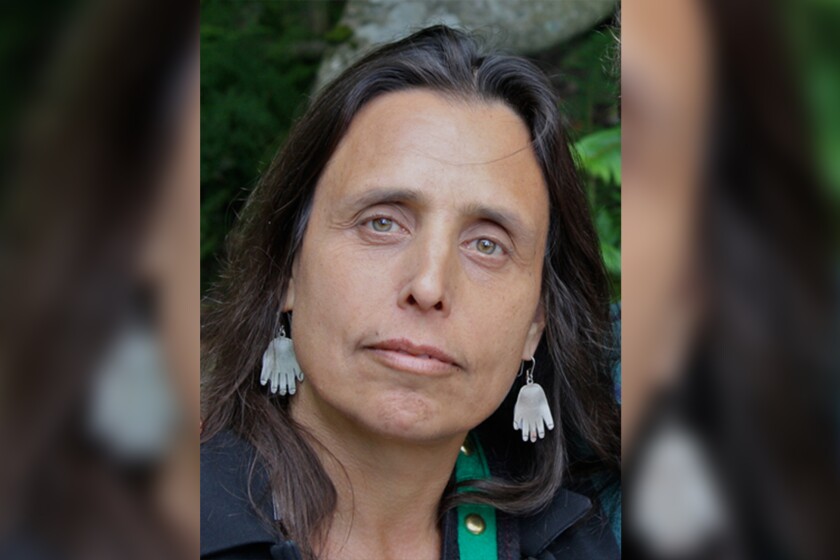I’ve been to a lot of inaugurations in my life, they are always full of promise, hope and, more recently, dread. The inauguration of Michael Fairbanks as White Earth Tribal Chairman, felt light to the heart. Seeing our leader in traditional regalia, dancing to the drums, was a powerful moment in my memory. The community seemed relieved and hopeful; and the chairman danced hard for the people. It seemed a genuine moment, not contrived; straight from the heart.
The unexpected death of Chairman Terrence Tibbetts set off a spin of political instability on the reservation as the interim leadership closed programs, laid off 80-plus employees, and changed direction. There is a lot of discord and fear on the reservation. Still, we are a nation of people, related by blood, history, culture, land and a hope for the future of all our children.
We face challenges. Our reservation, intended as the homeland for the Anishinaabeg, was established through a treaty in 1967. Our people came from near and far to this promised land, our refuge in a time of land thefts, genocide, and the rise of timber and railroad barons, all intent upon taking Native lands. Our people — skilled hunters, wild ricers, basket makers and farmers — produced much food for those who came from elsewhere to Minnesota, and our people have a long history of agreements and treaties. One of the first international treaties, between our people and the Iroquois in 1712 in Montreal, is referred to as the One Dish One Spoon Treaty. In that treaty, we reaffirmed that we all hunted in the same territories and that we should work together as we all eat from the same dish. That is true today.
RELATED
What happens at White Earth is important, not only to the Anishinaabeg, but to the entire region and North America. That’s why Enbridge’s latest tribal liaison, Robert Durant, ran for tribal chairman with corporate backing. Canadian multinationals are interested in influencing our tribal leadership. Durant lost resoundingly, and Fairbanks received the first two-thirds approval vote of any recent election.
ADVERTISEMENT
White Earth is wealthy. Our tribal land base has supported the regional economy, and tribal money pours off the reservation to border towns quickly. Our White Earth people represent half of the Minnesota Chippewa Tribe, and our territories and land span from Superior, to the border of North Dakota, reaffirmed in treaties, including the 1855 and 1867 treaties.
Minnesota-style colonialism has made our land poor. Our ancestors drank the water from the streams and lakes, fed ourselves from fish, buffalo and moose, and our wild rice was abundant. In the short 150 years since that time, lakes have been contaminated; over half the wild rice crops destroyed by “management practices;” our trees stolen from our lands; our moose and buffalo relatives all but obliterated; and our people forced into a systemic poverty and deep trauma . We live in a post apocalyptic world.
Today, we are faced with poverty, and our health is compromised. Opioid and suicide epidemics plague our communities, diabetes ravages through our villages, and we fear the wintertime and the heating bills. In many ways, Native people are a microcosm, and the Miner’s Canary of society. In other words, we bear the worst burdens of poor policies. The fact is that leading the White Earth nation at any time is a challenge. In the time of President Trump, with his endless assaults on Native sovereignty, civil rights, the environment, and human dignity, it is a stressful time to be a tribal leader.
At the same time, the possibilities to make a beautiful life again for the Anishinaabe are good. White Earth has many highly educated tribal members who are steeped in Indigenous knowledge. Our reservation has more agricultural lands within the borders than any reservation in Minnesota; that could be a part of an organic, local and international food and hemp economy. Until this past administration, White Earth led the nation in tribal hemp development; something which the interim administration banned. Our tribe continues to have excellent renewable energy potential, particularly wind power. And, facing another winter of fuel poverty, the work at 8 th Fire Solar, an entity manufacturing solar thermal panels out of Ponsford, Minn., shows good promise for an industry throughout the north country, saving up to 20% of household heating bills.
Our tribe can move beyond lateral oppression and trauma. That means healing; and that’s a commitment made by Fairbanks in his inauguration speech. There are many paths to healing. And, more than that, a beautiful future. We all wish the chairman strength, courage, wisdom and compassion.
Maamaawii, altogether, we make that minobimaatisiiwin — that’s how strong nations are made, together.








